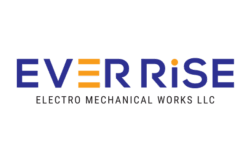
The Mechanical, Electrical, and Plumbing (MEP) sector plays a vital role in the infrastructure and construction industries of the UAE. As the country continues its rapid growth, new developments in MEP contracting are shaping the way buildings and infrastructure projects are being designed and executed. In 2024, several trends are emerging in MEP contracting that are set to impact the industry significantly.
1. Sustainability and Energy Efficiency
Sustainability remains at the forefront of MEP contracting in the UAE. As the government continues its focus on achieving net-zero carbon emissions by 2050, there is increasing demand for energy-efficient MEP systems. Contractors are adopting sustainable technologies such as LED lighting, solar panels, and smart HVAC systems that reduce energy consumption and meet the country’s stringent green building codes like Estidama and Dubai Green Building Regulations.
Additionally, the UAE is seeing more investment in green retrofitting projects for older buildings to improve energy efficiency and reduce operational costs. MEP contractors are focusing on integrating sustainable practices into their designs, construction, and maintenance processes to stay competitive in this evolving landscape.
2. Digitalization and Smart Technologies
The UAE’s construction sector is embracing the digital revolution, and MEP contracting is no exception. The use of Building Information Modeling (BIM) has become standard practice in the industry, allowing contractors to design, plan, and execute projects more efficiently. In 2024, MEP contractors are expected to leverage even more advanced digital tools, such as artificial intelligence (AI), data analytics, and the Internet of Things (IoT).
Smart buildings, equipped with IoT-enabled systems that monitor energy use, air quality, and water consumption, are on the rise. MEP contractors are increasingly tasked with integrating smart technologies into their designs to provide real-time data and optimize building performance.
3. Increased Focus on Modular Construction
Modular construction is another trend that is gaining traction in the UAE’s MEP sector. This method involves prefabricating MEP components off-site and then assembling them on-site, resulting in reduced construction time, lower costs, and improved safety.
In 2024, MEP contractors are expected to adopt modular systems more widely, especially for large-scale projects like hospitals, hotels, and residential complexes. This approach also allows for better quality control and minimizes the disruptions caused by traditional construction methods.
4. Emphasis on Fire and Safety Systems
With new regulations and increased safety standards in the UAE, there is growing demand for advanced fire protection and safety systems in buildings. MEP contractors are now required to ensure that projects comply with the latest fire safety codes, such as those established by the Dubai Civil Defence (DCD).
In 2024, fire-resistant materials, smoke detection systems, and fire suppression technologies are expected to become standard components of MEP projects. Contractors are also investing in advanced training to ensure that their teams are well-versed in implementing and maintaining these systems in various types of buildings.
5. Technological Integration with HVAC Systems
As the UAE continues to experience extreme temperatures, advancements in HVAC (Heating, Ventilation, and Air Conditioning) systems are vital. In 2024, there will be an increased emphasis on smart HVAC systems that can be remotely controlled, provide real-time data, and adjust based on environmental conditions.
MEP contractors are integrating these systems with IoT technology, enabling predictive maintenance and reducing energy consumption. Smart HVAC systems help optimize airflow, enhance indoor air quality, and minimize the environmental impact, all of which are in line with the UAE’s sustainability goals.
6. Talent Development and Training
The MEP contracting industry in the UAE is facing a shortage of skilled labor, particularly in the areas of digitalization and new technologies. To address this, many companies are investing in talent development and training programs. In 2024, we can expect to see more MEP contractors providing specialized training in areas such as BIM, AI, and sustainable construction practices.
Government initiatives, such as the UAE’s National Strategy for Industry and Advanced Technology, are also encouraging the upskilling of the workforce. Contractors that prioritize training and development will be better positioned to take advantage of the growing demand for innovative MEP solutions.
7. Collaboration and Integrated Project Delivery (IPD)
Collaboration between stakeholders is becoming more essential in the UAE’s construction industry. In 2024, the adoption of Integrated Project Delivery (IPD) will continue to rise, especially for complex projects. IPD promotes collaboration among the client, contractor, designer, and suppliers from the early stages of the project to ensure efficiency and cost-effectiveness.
MEP contractors are playing a critical role in these collaborative efforts, ensuring that their systems are integrated seamlessly with other building components. The result is faster project delivery, improved budget management, and fewer disputes among stakeholders.
The MEP contracting landscape in the UAE is rapidly evolving in 2024, driven by sustainability, digitalization, and technological advancements. Contractors who can adapt to these trends will be well-positioned to thrive in an increasingly competitive market. From smart technologies to modular construction, the future of MEP contracting in the UAE looks bright, with opportunities for growth and innovation shaping the industry for years to come.
By staying ahead of these trends and incorporating them into their projects, MEP contractors can meet the growing demand for energy-efficient, safe, and technologically advanced buildings in the UAE.
